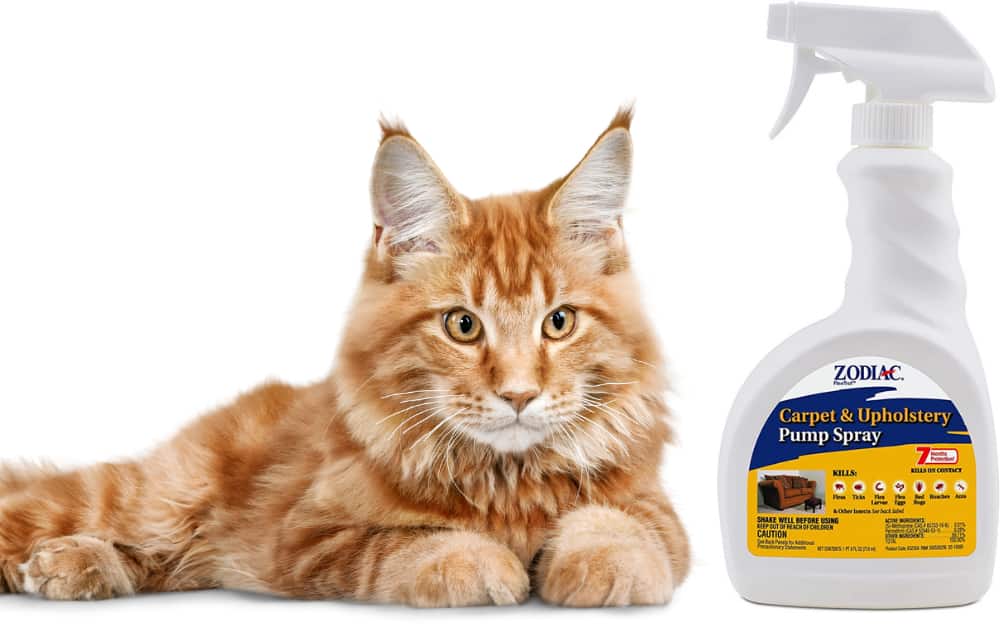Cats have long been known for their prowess as hunters and ability to catch small animals with remarkable speed and agility. However, one particular creature that caught the attention of many cat owners and enthusiasts is Cats Catching Bats.
Cats catch and hunt bats because bats are small, weak, and easy to hunt targets. Another reasons cats hunt bats are the attraction of their high-pitched echolocation calls.
Despite being known for their elusive and nocturnal behavior, bats have become a target for many pets with an uncanny ability to catch them mid-flight.
In this blog post, we will explore the question that has puzzled many pet owners and wildlife enthusiasts alike why do cats hunting bats? And how you can stop your furry friend from catching bats.
Why Cats Catching Bats?
Cats are natural hunters, and their hunting instincts are highly developed. Being small, agile, and flying mammals, bats make for ideal hunting cat targets. Despite their nocturnal and elusive behavior, cats are well-equipped to hunt and catch bats.
Another factor that contributes to cats catching bats is the attraction of their high-pitched echolocation calls. These calls are inaudible to humans but can be heard by cats, which may be attracted to the sound and see it as an opportunity to hunt.
Their keen hearing and exceptional eyesight enable them to track and follow the erratic flight of a bat, while their sharp claws and quick reflexes allow them to pounce on their prey with great speed and accuracy.
These instincts are so ingrained in their behavior that even domesticated outdoor cats often display hunting behaviors, such as stalking, pouncing, and catching small prey.
It is not advisable to encourage your kitty to hunt bats or other wildlife, as it can be dangerous for both the cat and the prey.

Can Cats Get Sick From Catching A Bat?
Yes, cats can get sick from catching a bat, as bats are known carriers of several diseases that can be transmitted to humans and animals. One of the most well-known diseases carried by bats is rabies, a viral infection that affects the central nervous system and is fatal if left untreated.
Rabies can be transmitted to cats through a bite or scratch from an infected bat and can also be transmitted to humans if they come into contact with the cat’s saliva or other bodily fluids.
In addition to rabies, bats can carry other diseases, such as histoplasmosis. This fungal infection can cause respiratory illness in cats and humans and salmonellosis, a bacterial infection that can cause vomiting, diarrhea, and fever. These diseases can be transmitted to cats through the bat’s droppings, saliva, or bodily fluids.
It is important to take precautions if a cat has caught a bat or if a bat is found in the home. The cat should be examined by a veterinarian and monitored for any signs of illness, including changes in behavior, appetite, or energy levels.
If the bat is still alive, it should be captured and handover to the protection unit.
If the bat is dead, it should be handled with gloves and disposed of safely to avoid any potential disease transmission.
What should I do if my cat catches a bat?
If your cat kills or catches a bat, it is important to take certain precautions to ensure your cat’s safety and yourself. Here are some steps you should take if your feline catches a bat:
- Wear protective gloves: Put on a pair of thick, protective gloves to avoid contact with the bat or bodily fluids.
- Remove the bat: Using a long-handled net or thick towel, gently remove the bat from your cat’s mouth or paws. Place the bat in a secure container, such as a box with air holes or a pet carrier.
- Observe your cat: Check your cat for any signs of injury or illness, including bites, scratches, or changes in behavior. Contact your veterinarian immediately if you notice any signs of illness or injury.
- Contact animal control: Contact your local animal control or wildlife rehabilitation center to report the incident and to determine if the bat should be tested for rabies.
- Seek medical attention: If you or your cat have come into contact with the bat’s saliva or other bodily fluids, seek medical attention to rule out any risk of rabies or other diseases.
How to stop your cat from catching Bats?
If you are concerned about your cat hunting bats, there are several steps you can take to help prevent this behavior. Here are some tips to stop your cat from catching bats:
1. Keep your cat Indoors

One of the best ways to prevent your cat from catching bats is to keep them indoors, especially at night when bats are most active. By keeping your cat indoors, you can help ensure their safety and reduce the risk of them coming into contact with bats or other wildlife.
2. Provide Plenty of Stimulation
Felines have the instinct to hunt and catch prey, so it is important to provide them with plenty of cats stimulation through toys, playtime, and interactive activities. This can help satisfy their hunting instincts and reduce the likelihood of them trying to catch bats.
3. Secure your Home for Bat Entering
Bats can enter homes through small openings, such as gaps in doors or windows, or through vents and chimneys. To prevent bats from entering your home, seal any openings and keep screens in good repair.
4. Discourage hunting behavior
If you notice your cat exhibiting hunting behavior, such as stalking or pouncing, redirect their attention to a toy or other activity.
You can also discourage this behavior by using a spray bottle or noise to startle them when they want to catch a bat.

Can Cats eat bats?
No, Cats are not supposed to eat bats.
Bats are known carriers of several diseases that can be transmitted to cats, including rabies, histoplasmosis, and salmonellosis. The flying mammals may also have been exposed to pesticides or other toxins, which can be harmful if ingested by cats.
While cats are natural predators and are capable of catching and killing bats, it is not recommended for them to eat bats or any other wildlife.
If you suspect your cat has eaten a bat, it is important to seek veterinary care immediately. Your veterinarian may recommend a series of tests and treatments to monitor your cat’s health and prevent the spreading of any potential diseases.
You May Also Like To Read:
FAQ
Do All Cats Hunt Bats?

No, not all cats catch bats. Some may not even show any interest in them. The likelihood of a cat catching a bat will depend on various factors, including their hunting experience, breed, and age.
What happens if a cat eats a bat?
A cat eating a bat can lead to several health problems and potential risks. If you suspect your cat has eaten a bat, it is important to seek veterinary care immediately.
Your veterinarian may recommend a series of tests and treatments to monitor your pet’s health and prevent the spreading of any potential diseases. Sometimes, the cat may need to be quarantined to prevent the spreading of diseases like rabies.
Can Cats Kill Bats?
No, cats are not supposed to kill bats.
Prevent your cat from catching, killing, or eating bats. Bats are a serious threat to your feline friend and can make them compel severe health complications. This is best to stop your kitty from dealing with bats with proper training and care.
Are bats dangerous to cats?
Yes, eating, hunting, or contact with bats are dangerous to cats and health threat to cause minor to severe health issues in cats, humans, and other animals in the household.
Conclusion:
Cats catching bats is a natural behavior driven by their hunting instincts and unique abilities. While it may seem curious to us as humans, it is a part of their natural behavior and should be understood in the context of their evolutionary history as predators.
It is important to ensure the safety of both pets and wildlife by keeping cats indoors, providing them with appropriate toys and activities, and avoiding the encouragement of hunting behavior.











